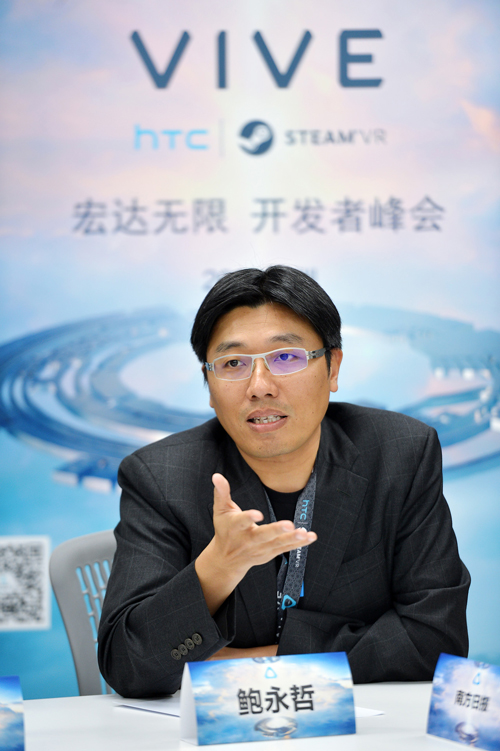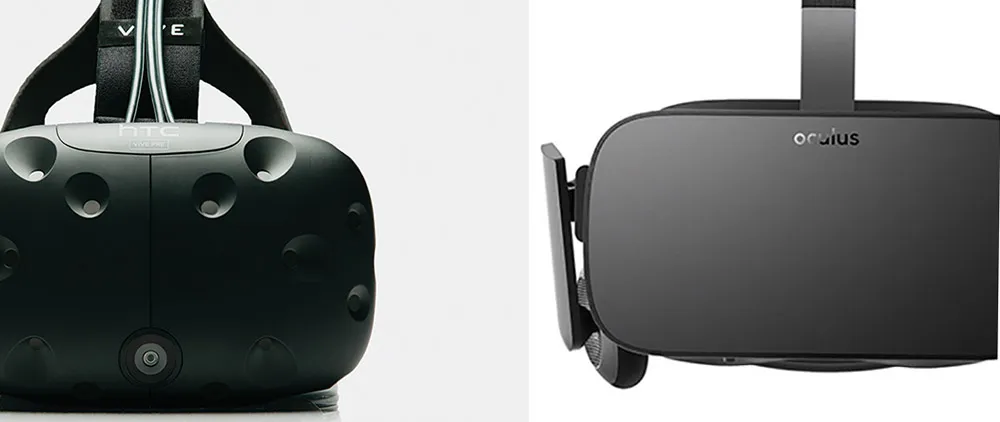Raymond Pao is the Vice President for new technologies at HTC. A longtime manufacturer of cell phones, smart phones, and other electronic devices, HTC recently branched out into a brand new territory through the release of its HTC Vive virtual reality headset. The Vive is a $799 piece of hardware that also requires a very powerful personal computer to function. That is a lot to stomach for the average consumer and the limited marketplace of interested VR customers is further segmented for HTC by the presence of another company offering a similarly powerful $599 VR headset: Facebook’s Oculus.
The Rift and Vive have become, in the minds of many, the Nintendo and Sega of this new hardware era. Fanaticism has naturally ensued online and elsewhere with lines being drawn as the proponents of each headset debate the different features, strengths, and weaknesses of their chosen favorite. Amidst all of this discussion however, one party is refusing to look at the two companies as rivals in any sense of the word. That company is none other than HTC itself.

UploadVR recently had the chance to speak with Pao in our San Francisco offices as he prepared to put a period on his most recent scouting trip to the United States. During the discussion, Pao was asked point blank what his take, as a senior executive for one of the world’s two most preeminent VR manufacturers, was on the Rift/Vive debate.
“Oculus is not our competition,” Pao said. “Much has been made about our two companies but at HTC our chief concern is to see virtual reality grow into the next great computing platform for the entire world. We are pushing for success in VR and our hope is that all VR companies find success in order to drive greater adoption for the industry.”
The notion of doing what’s best for VR as a whole is a common one, which is also echoed by Oculus’ own Head of Content, Jason Rubin. When asked if this friendly spirit is realized through any form of collaboration between the two companies, Pao’s answer was in the affirmative.
“We do talk with Oculus and we talk even more often with Sony,” Pao said. “We don’t necessarily share our company’s secrets, but we see all of these people regularly at panels or VR events and the relationships are always positive.”
Sony is preparing to launch its own PlayStation VR headset in October of this year. With the lowest price point of the three systems ($399) and a built-in install base of PlayStation 4 owners, it would be safe to assume that this last horse to enter the race may end up winning the whole thing in the near term.
Although, as Pao would say, perhaps the real winner in any success story will be the VR industry itself.


























